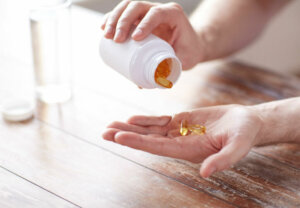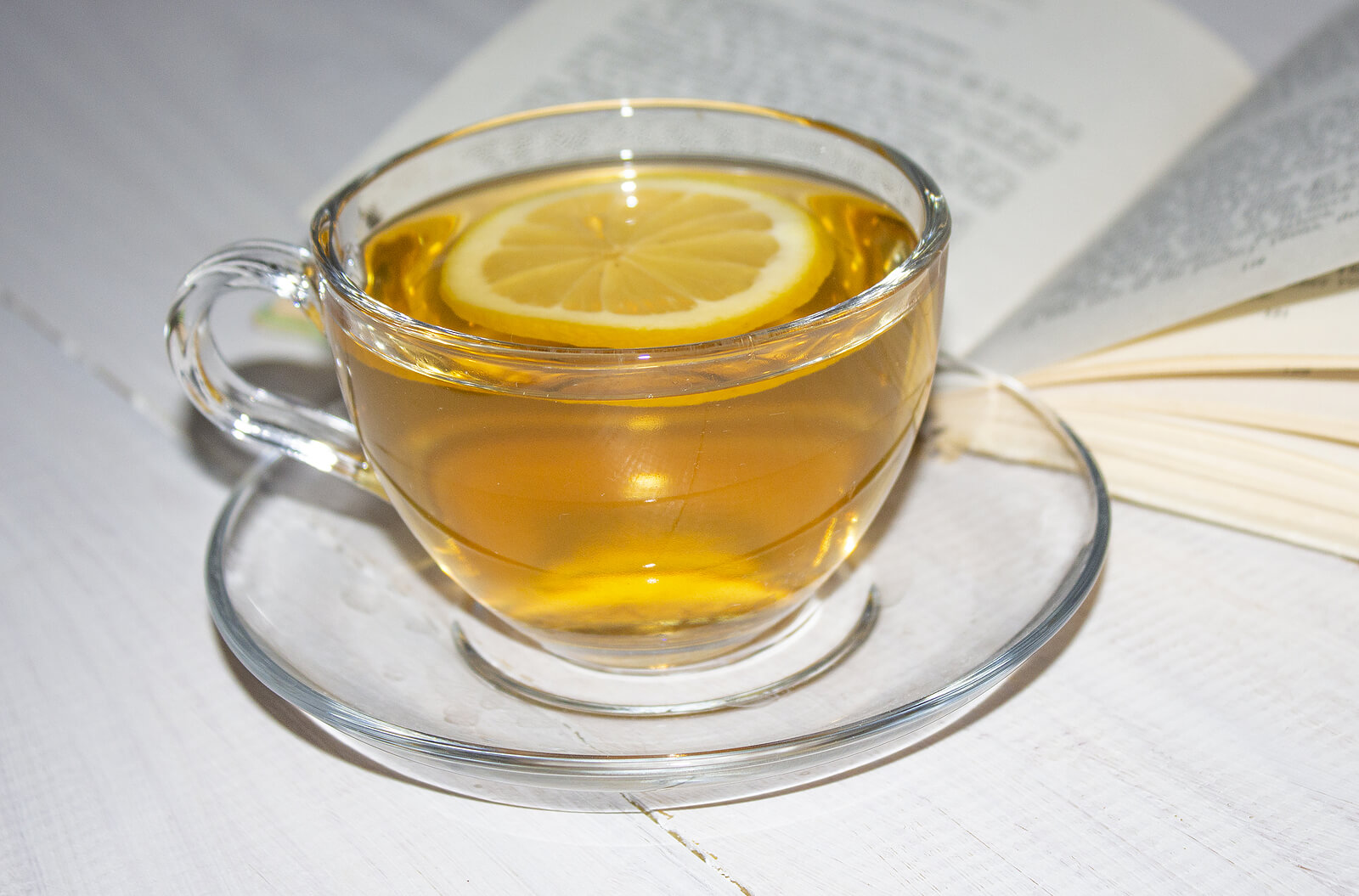6 Medications that Can Raise Blood Pressure

Etiologically there are two types of hypertension: idiopathic and secondary. The first affects 90% of patients with no apparent cause of development. The second corresponds to 10% of the cases, and has its origin in some type of catalyst. Among all these, some drugs that raise blood pressure have been identified.
Whether its intake is regulated by a specialist or not, certain drugs cause an increase in blood pressure as a side effect. Knowing what they are is very important in order to be aware of possible tension imbalances, especially if you’re part of a risk group. Today, we’ll show you some conclusions proven by science.
Medications that raise blood pressure
There are many ways that medications can raise blood pressure. Although it depends on the group they belong to, the evidence indicates that fluid retention, changes in the sympathetic system, and direct vasoconstriction are some of the ways that can lead to hypertension.
We also know that most of these increases are transitory and generally don’t endanger the patient’s life. If combined with other catalysts or a neglected lifestyle, then they can trigger kidney problems, encephalopathies, and cardiovascular accidents.
The problem is that many of them are available over the counter. Millions of people start their intake each year to relieve colds, pain or to counteract allergy symptoms. Even when antihypertensive treatment is maintained, they can reverse the vasodilator effects. Among all, we can highlight the following:
1. Pain relievers

Pain relievers such as acetaminophen, piroxicam, ibuprofen, naproxen, aspirin, and indomethacin are generally used to relieve symptoms of headaches, muscle aches, inflammation, and fever. Studies and research have associated its regular consumption with a rise in blood pressure, regardless of whether the patient has another risk factor.
The development of this sequel can even occur even in people who don’t suffer from hypertension. Pain relievers are available over the counter and used without medical supervision in much of the world. The generative mechanism isn’t known, although the hypothesis focuses on sodium retention.
2. Antidepressants
Antidepressants are a group of drugs that work by altering the body’s response to some chemicals. For example, serotonin and dopamine. Although the debate is still open, its intake has been associated with an increased risk of developing hypertension.
The possible relationship between them and pregnancy has also been investigated. An article published in BMC Pregnancy and Childbirth in 2019 determined that pregnant women have up to three times the risk of developing preeclampsia and gestational hypertension when exposed to antidepressants.
Among those mentioned are the tricyclics, monoamine oxidase inhibitors, venlafaxine and fluoxetine. Since their treatment is often prolonged, patients must monitor their pressure on a regular basis.
3. Oral contraceptives
There’s evidence that taking oral contraceptives increases your chances of developing heart conditions. If you suffer from hypertension and maintain a treatment regimen with them it’s possible that they counteract the antihypertensive qualities of the therapy, according to some studies.
The relationship between contraceptives and high blood pressure isn’t clear, but the hormonal changes they generate are believed to trigger a number of internal physiological disorders.
The higher the hormonal dose, the greater the complications. However, some research indicates that cardiovascular effects can be triggered with just 30 micrograms of estrogen.
4. Immunosuppressants
Immunosuppressants are very common in people who have had an organ transplant. In these cases, they’re used to prevent rejection, although their intake is approved to treat autoimmune diseases. Thus, people suffering from lupus or rheumatoid arthritis maintain a treatment based on them.
These drugs are thought to affect the kidneys by reducing the excretion of water, potassium, and sodium, as evidenced by this report. Those indicated in this case are tacrolimus and cyclosporine. The latter can generate blood pressure imbalance in up to 50% of cases, according to studies.
5. Herbal supplements

Many people choose natural remedies as an alternative to drugs, believing that they are safer. Just because a supplement has only natural ingredients doesn’t prevent it from having side effects. For example, research suggests that the following supplements can cause hypertension:
- Ginseng
- Bitter orange
- Guarana
- Arnica
- Southern blueberry
- St. John’s Wort
- Licorice
- Pennyroyal oil
- Ephedra
- Dong Quai
If you start a treatment based on any of these supplements, you should inform your doctor, especially if you already have drug therapy. Their interaction with some medications can raise blood pressure. You should be careful with its intake and never replace it with therapy recommended by a specialist.
6. Cold medications
Most of the medications recommended to treat the common cold are available over the counter. Every year millions of people start self-medication based on them, sometimes delayed for longer than recommended.
It is proven that the abuse of nasal decongestants can cause hypertensive crises and irreversible kidney damage. The use of phenylephrine-containing medications has also been linked to hypertension in children. Other decongestants such as pseudoephedrine have been identified by some research as causing an increase in blood pressure.
The side effects of all these groups vary according to the dose, weight, age of the patient, and time of exposure. They can also get worse if you are in risk groups for high blood pressure. Here are the main ones:
- Being overweight or obese
- Not doing physical activity on a recurring basis
- Having an uncontrolled diet with a high percentage of processed foods and sodium
- History of hypertension in the family group
- Suffering from cardiovascular conditions, diabetes, and liver or kidney conditions
- Be over 40 years old
- Frequently developing episodes of stress or anxiety
If you share several of these risk factors and abuse the dosage suggested in the drug package insert, the balance will tip against you. These medications that can increase blood pressure should be prescribed, if possible, by a specialist. Self-medication is not recommended, especially in the presence of previous conditions.
Very often, hypertension doesn’t cause symptoms, which can prevent those who use these drugs irregularly from knowing about the changes occurring in their blood vessels. Monthly monitoring of blood pressure levels is recommended as a preventive method. If you detect an imbalance, seek medical assistance to find a replacement.
Etiologically there are two types of hypertension: idiopathic and secondary. The first affects 90% of patients with no apparent cause of development. The second corresponds to 10% of the cases, and has its origin in some type of catalyst. Among all these, some drugs that raise blood pressure have been identified.
Whether its intake is regulated by a specialist or not, certain drugs cause an increase in blood pressure as a side effect. Knowing what they are is very important in order to be aware of possible tension imbalances, especially if you’re part of a risk group. Today, we’ll show you some conclusions proven by science.
Medications that raise blood pressure
There are many ways that medications can raise blood pressure. Although it depends on the group they belong to, the evidence indicates that fluid retention, changes in the sympathetic system, and direct vasoconstriction are some of the ways that can lead to hypertension.
We also know that most of these increases are transitory and generally don’t endanger the patient’s life. If combined with other catalysts or a neglected lifestyle, then they can trigger kidney problems, encephalopathies, and cardiovascular accidents.
The problem is that many of them are available over the counter. Millions of people start their intake each year to relieve colds, pain or to counteract allergy symptoms. Even when antihypertensive treatment is maintained, they can reverse the vasodilator effects. Among all, we can highlight the following:
1. Pain relievers

Pain relievers such as acetaminophen, piroxicam, ibuprofen, naproxen, aspirin, and indomethacin are generally used to relieve symptoms of headaches, muscle aches, inflammation, and fever. Studies and research have associated its regular consumption with a rise in blood pressure, regardless of whether the patient has another risk factor.
The development of this sequel can even occur even in people who don’t suffer from hypertension. Pain relievers are available over the counter and used without medical supervision in much of the world. The generative mechanism isn’t known, although the hypothesis focuses on sodium retention.
2. Antidepressants
Antidepressants are a group of drugs that work by altering the body’s response to some chemicals. For example, serotonin and dopamine. Although the debate is still open, its intake has been associated with an increased risk of developing hypertension.
The possible relationship between them and pregnancy has also been investigated. An article published in BMC Pregnancy and Childbirth in 2019 determined that pregnant women have up to three times the risk of developing preeclampsia and gestational hypertension when exposed to antidepressants.
Among those mentioned are the tricyclics, monoamine oxidase inhibitors, venlafaxine and fluoxetine. Since their treatment is often prolonged, patients must monitor their pressure on a regular basis.
3. Oral contraceptives
There’s evidence that taking oral contraceptives increases your chances of developing heart conditions. If you suffer from hypertension and maintain a treatment regimen with them it’s possible that they counteract the antihypertensive qualities of the therapy, according to some studies.
The relationship between contraceptives and high blood pressure isn’t clear, but the hormonal changes they generate are believed to trigger a number of internal physiological disorders.
The higher the hormonal dose, the greater the complications. However, some research indicates that cardiovascular effects can be triggered with just 30 micrograms of estrogen.
4. Immunosuppressants
Immunosuppressants are very common in people who have had an organ transplant. In these cases, they’re used to prevent rejection, although their intake is approved to treat autoimmune diseases. Thus, people suffering from lupus or rheumatoid arthritis maintain a treatment based on them.
These drugs are thought to affect the kidneys by reducing the excretion of water, potassium, and sodium, as evidenced by this report. Those indicated in this case are tacrolimus and cyclosporine. The latter can generate blood pressure imbalance in up to 50% of cases, according to studies.
5. Herbal supplements

Many people choose natural remedies as an alternative to drugs, believing that they are safer. Just because a supplement has only natural ingredients doesn’t prevent it from having side effects. For example, research suggests that the following supplements can cause hypertension:
- Ginseng
- Bitter orange
- Guarana
- Arnica
- Southern blueberry
- St. John’s Wort
- Licorice
- Pennyroyal oil
- Ephedra
- Dong Quai
If you start a treatment based on any of these supplements, you should inform your doctor, especially if you already have drug therapy. Their interaction with some medications can raise blood pressure. You should be careful with its intake and never replace it with therapy recommended by a specialist.
6. Cold medications
Most of the medications recommended to treat the common cold are available over the counter. Every year millions of people start self-medication based on them, sometimes delayed for longer than recommended.
It is proven that the abuse of nasal decongestants can cause hypertensive crises and irreversible kidney damage. The use of phenylephrine-containing medications has also been linked to hypertension in children. Other decongestants such as pseudoephedrine have been identified by some research as causing an increase in blood pressure.
The side effects of all these groups vary according to the dose, weight, age of the patient, and time of exposure. They can also get worse if you are in risk groups for high blood pressure. Here are the main ones:
- Being overweight or obese
- Not doing physical activity on a recurring basis
- Having an uncontrolled diet with a high percentage of processed foods and sodium
- History of hypertension in the family group
- Suffering from cardiovascular conditions, diabetes, and liver or kidney conditions
- Be over 40 years old
- Frequently developing episodes of stress or anxiety
If you share several of these risk factors and abuse the dosage suggested in the drug package insert, the balance will tip against you. These medications that can increase blood pressure should be prescribed, if possible, by a specialist. Self-medication is not recommended, especially in the presence of previous conditions.
Very often, hypertension doesn’t cause symptoms, which can prevent those who use these drugs irregularly from knowing about the changes occurring in their blood vessels. Monthly monitoring of blood pressure levels is recommended as a preventive method. If you detect an imbalance, seek medical assistance to find a replacement.
- Beunza, J. J., Martínez-González, M. Á., Bes-Rastrollo, M., Núñez-Córdoba, J. M., Toledo, E., & Alonso, Á. Aspirina, analgésicos y riesgo de hipertensión arterial en la Cohorte SUN. Revista española de cardiología. 2010; 63(3): 286-293.
- Bernard, N., Forest, J. C., Tarabulsy, G. M., Bujold, E., Bouvier, D., & Giguère, Y. Use of antidepressants and anxiolytics in early pregnancy and the risk of preeclampsia and gestational hypertension: a prospective study. BMC pregnancy and childbirth. 2019; 19(1): 1-9.
- Buysschaert, I., Van Dorpe, J., & Dujardin, K. Hypertensive crisis and end-organ damage induced by over-the-counter nasal decongestant abuse. European heart journal. 2011; 32(24): 3114-3114.
- Camps, M. B., Fernández, T. U., Díaz, R. M., i Vilaubí, J. M. P., Cabello, M. I. E., Doménech, C. S., & Grupo de trabajo en HTA de la semFYC. ¿Puede el consumo de antiinflamatorios no esteroideos y otros analgésicos aumentar el riesgo de desarrollar hipertensión arterial?. FMC-Formación Médica Continuada en Atención Primaria. 2008; 15(3):193.
- Curtis, K. M., Mohllajee, A. P., Martins, S. L., & Peterson, H. B. Combined oral contraceptive use among women with hypertension: a systematic review. 2006; 73(2): 179-188.
- Foy, M. C., Vaishnav, J., & Sperati, C. J. (2019). Drug-induced hypertension. Endocrinology and Metabolism Clinics. 2019; 48(4): 859-873.
- Fox, B. D., Azoulay, L., Dell’Aniello, S., Langleben, D., Lapi, F., Benisty, J., & Suissa, S. The use of antidepressants and the risk of idiopathic pulmonary arterial hypertension. Canadian Journal of Cardiology. 2014; 30(12): 1633-1639.
- Grossman, E., & Messerli, F. H. (2012). Drug-induced hypertension: an unappreciated cause of secondary hypertension. The American journal of medicine. 2012; 125(1): 14-22.
- Hodsman, G. P., Robertson, J. I. S., Semple, P. F., & Mackay, A. Malignant hypertension and oral contraceptives: four cases, with two due to the 30 ug oestrogen pill. European heart journal. 1982; 3(3): 255-259.
- Jalili, J., Askeroglu, U., Alleyne, B., & Guyuron, B. Herbal products that may contribute to hypertension. Plastic and reconstructive surgery. 2013; 131(1): 168-173.
- Kaminski, P., Szpotanska-Sikorska, M., & Wielgos, M. Cardiovascular risk and the use of oral contraceptives. Neuroendocrinology Letters. 2013; 34(7).
- Masi, S., Uliana, M., Gesi, M., Taddei, S., & Virdis, A. Drug-induced hypertension: Know the problem to know how to deal with it. Vascular pharmacology. 2019; 115: 84-88.
- Morales-Carpi, C., Torres-Chazarra, C., Lurbe, E., Torró, I., & Morales-Olivas, F. J. Cold medication containing oral phenylephrine as a cause of hypertension in children. European journal of pediatrics. 2008; 167(8): 947-948.
- Porter, G. A., Bennett, W. M., & Sheps, S. G. Cyclosporine-associated hypertension. Archives of internal medicine. 1990; 150(2): 280-283.
- Salerno, S. M., Jackson, J. L., & Berbano, E. P. Effect of oral pseudoephedrine on blood pressure and heart rate: a meta-analysis. Archives of internal medicine. 2005; 165(15):1686-1694.
Este texto se ofrece únicamente con propósitos informativos y no reemplaza la consulta con un profesional. Ante dudas, consulta a tu especialista.







